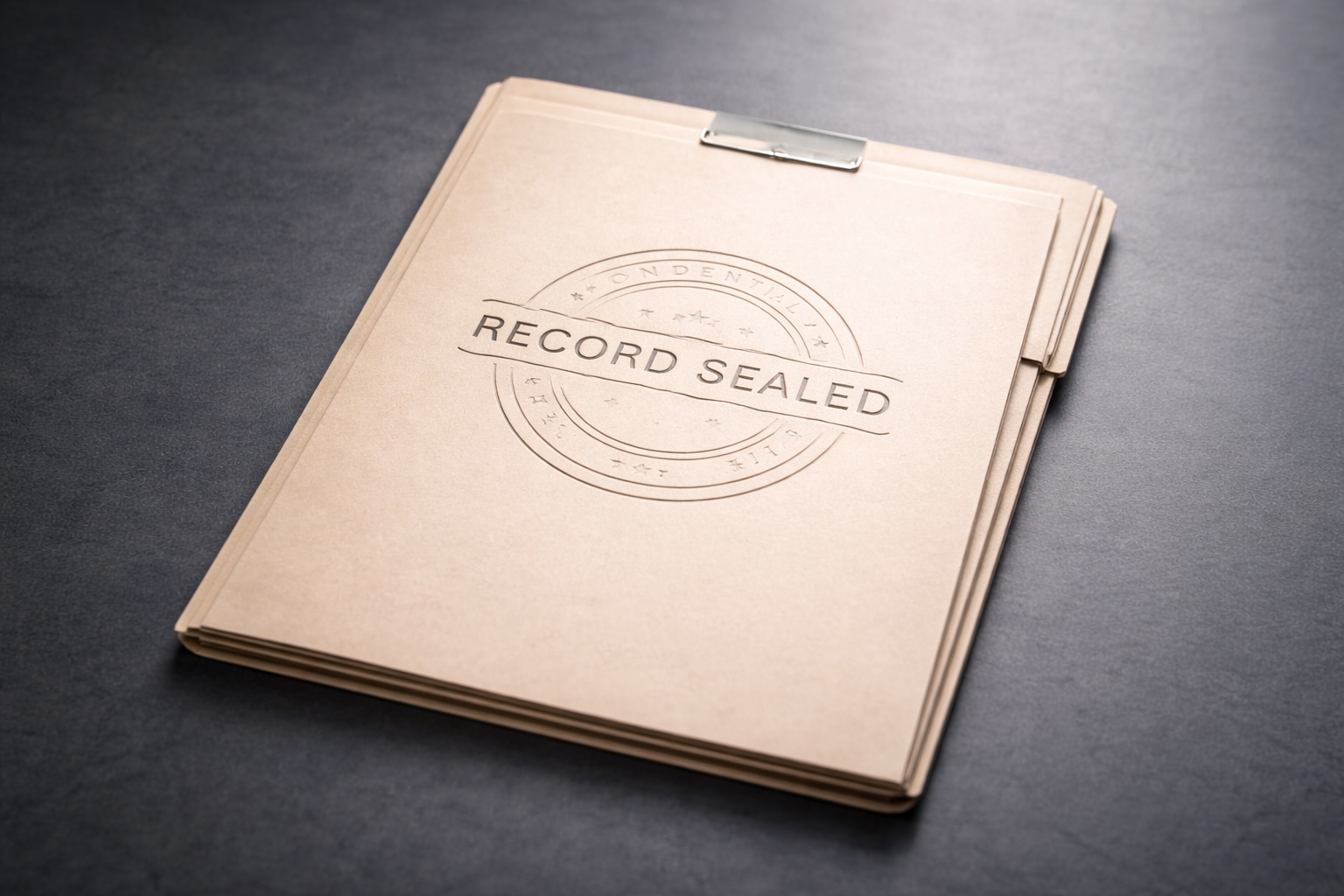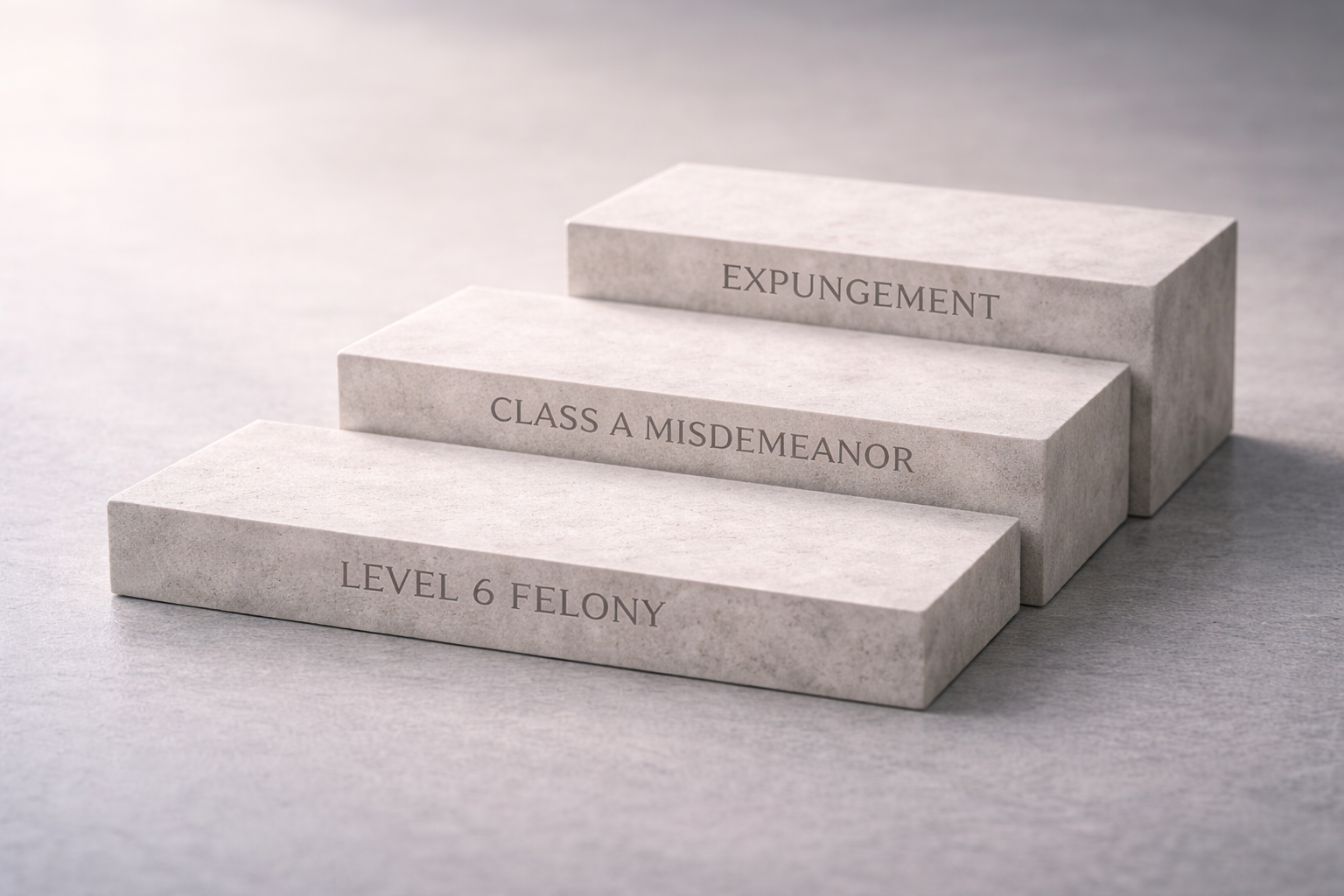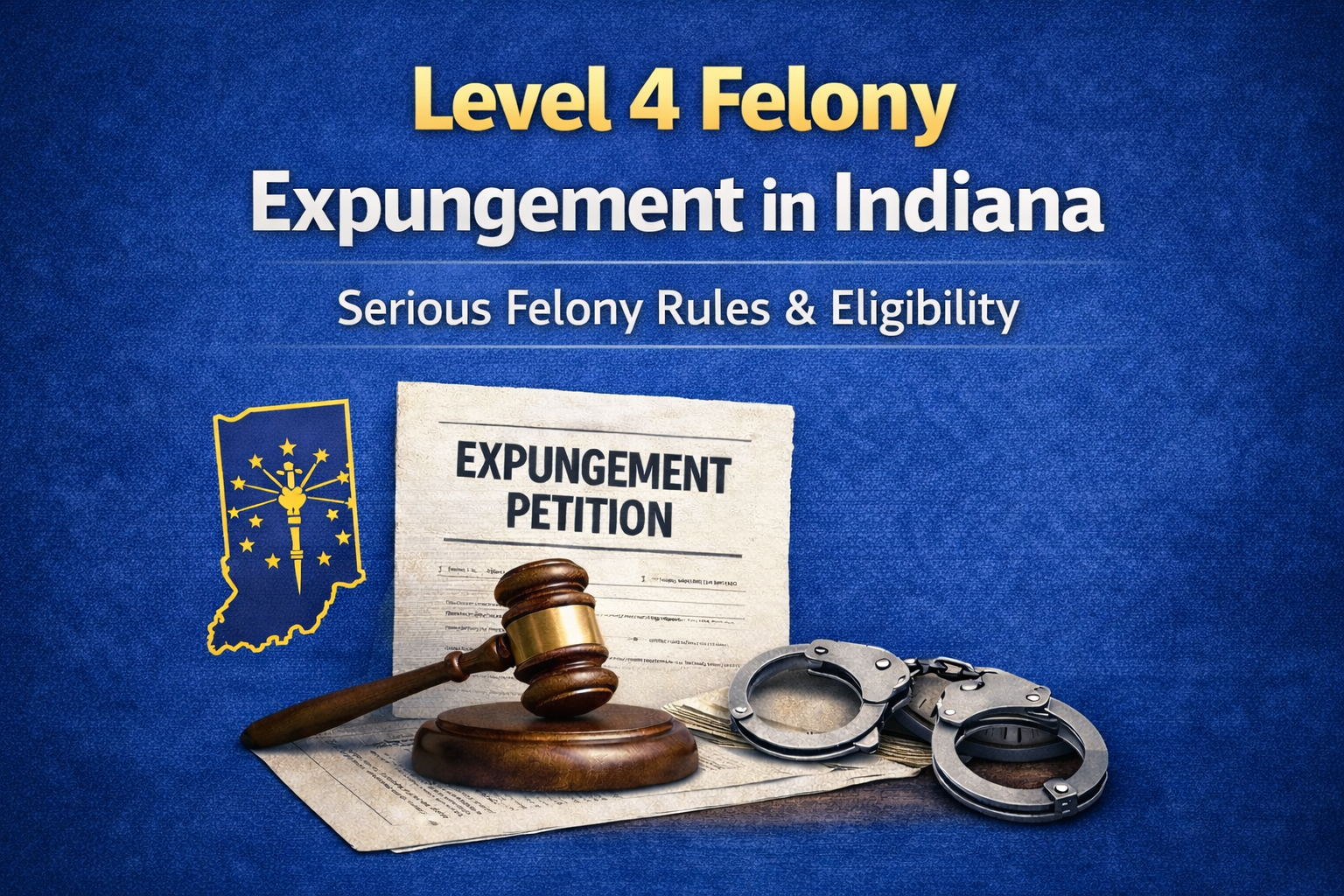Sealing vs. Expungement in Indiana: What’s the Difference?
Introduction: What Happens to Your Record After a Conviction—or an Arrest?
If you’ve ever been arrested, charged, or convicted of a crime in Indiana, you may have heard about two legal options to help clear your record: sealing and expungement. But what do they actually mean? Are they the same thing? And which one applies to your situation?
🧾 Quick answer: Sealing and expungement are closely related in Indiana—but they are not identical.
Let’s break down the difference and explain how each can help you move forward with your life.
What Is Expungement in Indiana?
Expungement is the legal process of clearing your criminal record under Indiana’s Second Chance Law (Indiana Code § 35-38-9). Depending on your case, this can include:
Arrests that didn’t lead to charges or convictions
Misdemeanor or felony convictions
Cases that were dismissed, diverted, or resulted in acquittal
Once expunged:
The record is sealed from public view
Employers, landlords, and most agencies cannot access the record
You can generally say you have not been convicted or arrested (with some exceptions for professional licensing)
What Is Sealing in Indiana?
In Indiana, “sealing” is what actually happens to your record after expungement. When your record is expunged:
✅ It’s sealed from public access
✅ It’s removed from online court records like mycase.in.gov
✅ Employers and most background checks cannot see it
🛑 But law enforcement agencies and certain professional licensing boards (like nursing, education, and healthcare) may still access sealed records in limited situations.
So in practice, sealing is a feature of expungement—not a separate process.
So What’s the Difference Between Sealing and Expungement in Indiana?
| Feature | Sealing | Expungement |
|---|---|---|
| Legal Process? | No – it’s the result of expungement | Yes – requires filing a petition |
| Public Access Removed? | Yes | Yes |
| Applies to Arrests? | Only through expungement | Yes – even if no conviction occurred |
| Applies to Convictions? | Indirectly (through expungement) | Yes – misdemeanors & eligible felonies |
| Background Check Impact? | Sealed records usually don’t show up | Expunged = sealed = not visible |
| Seen by Licensing Boards? | Sometimes yes | Yes (for certain agencies) |
| Available Immediately? | No – must qualify for expungement first | Yes – if eligible under IC § 35-38-9 |
Bottom line: In Indiana, you don’t “just seal” your record. You must qualify for and file for expungement, which results in sealing.
When Should You File for Expungement in Indiana?
You may be eligible to expunge your record if:
You were arrested but not convicted
Your case was dismissed or diverted
You were convicted, and:
It’s been 5 years since a misdemeanor
It’s been 8 years since a Level 6 felony
It’s been 10+ years (and prosecutor consent) for more serious felonies
📌 Some convictions—like sex crimes, official misconduct, or homicide—cannot be expunged.
Who Can Still See a Sealed/Expunged Record in Indiana?
Law enforcement
Prosecutors
Courts (for enhanced sentencing or future charges)
Professional licensing boards
Certain government agencies
But for employment, housing, and background checks, the record is off-limits once sealed.
Why Understanding the Difference Matters
Many people think expungement erases their record. It doesn’t. It seals the record—removing it from public view, but not from existence. That distinction matters if you’re:
Applying for a professional license
Going to court again
Running for public office
Working in healthcare, education, or law enforcement
That’s why it’s crucial to get the right legal guidance for your situation.
Conclusion: Seal It Through Expungement—And Take Control of Your Future
In Indiana, sealing is the result of successful expungement. Once your record is expunged, it’s sealed from public access, helping you clear your name and get a second chance.
📞 Ready to find out if you qualify? Call Vining Legal LLC at (317) 759-3225 or schedule a free consultation to talk through your case and next steps.





